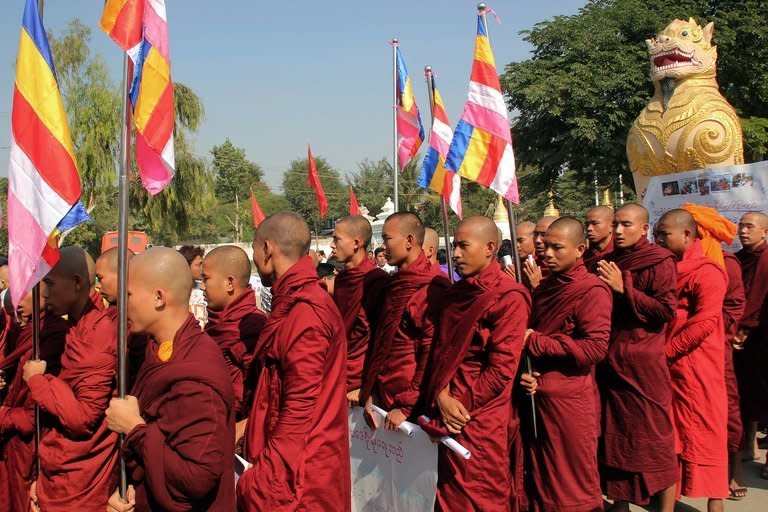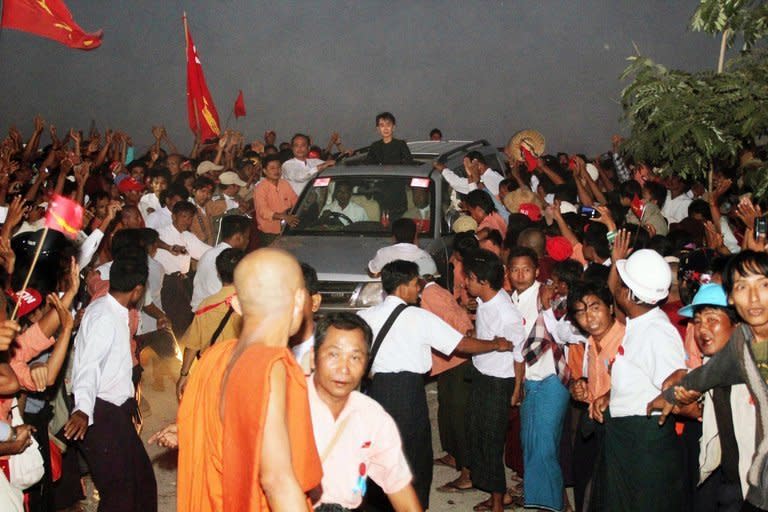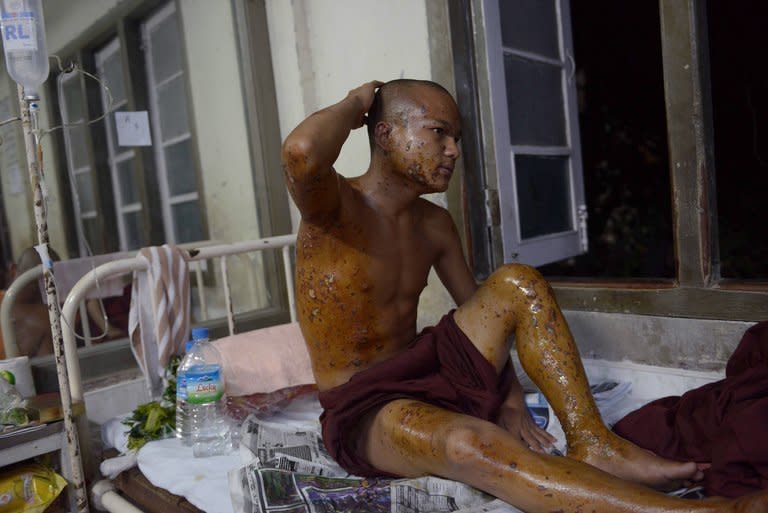Myanmar probe finds phosphorus used in crackdown
Myanmar police used phosphorus against a rally at a copper mine last year, a parliamentary report led by Aung San Suu Kyi said Tuesday, in the harshest crackdown yet on protest under the reformist regime. However the probe into the November clampdown, which left dozens wounded including monks, recommended the mine at the heart of the dispute continue to operate, despite conceding it only brought "slight" benefits to the nation. Angry local residents swiftly rejected the findings and insisted the mine, a joint venture between Chinese firm Wanbao and military-owned Myanmar Economic Holding, be shut down over environmental concerns and charges of land-grabbing. "We will go on until the copper mine project is closed down," activist Thwe Thwe Win told AFP. "We will try legal action peacefully, but we will also use other ways if necessary." Suu Kyi is due Wednesday to visit the mine in Nomywa, northern Myanmar, and a number of nearby villages, a member of her security staff told AFP. She could face a stern reception from residents who have waged a spirited campaign against the project. Burns sustained by monks and civilian protesters caused a wave of outrage across Myanmar, sparking further protests and leading to an official apology to senior clerics for a crackdown widely seen as a throwback to junta-era tactics. The United States, which is normalising relations with Myanmar and which has hardly any sanctions remaining against the country, said it condemned any use of phosphorus as a crowd control measure. "We are continuing... to have a rigorous human rights dialogue with Burma, which includes issues like police conduct, freedom of assembly, these kinds of things," US State Department spokeswoman Victoria Nuland said. The parliamentary report found "unexpected and unnecessary burns" were inflicted as police used smoke bombs against protesters "without knowing what their effect would be". It said that the devices contained phosphorus -- a fast-burning substance more typically used in war as an incendiary weapon or to create smoke screens. Myanmar, ruled for decades by a brutal junta until a reformist regime was installed last year, has recently seen waves of protest against land grabbing as disgruntled rural people test the new government's stated commitment to freedom of expression. Chinese-backed projects to tap the nation's abundant natural resources have sparked particular resentment. The report, which was delivered to Myanmar's reformist president on Monday, called for reform of authorities' riot control methods. It said the protests were a result of "poor transparency" from local officials, and that the compensation offered for land "was not at market value". It also recommended an increase in compensation, for environmental and social impact assessments to be carried out and for more jobs to be created for locals. The Suu Kyi-led probe found the mine had appropriated more land than was necessary and should return some of it to local people. It also said mine operators will only pay the government around half the full contractual 16.8 percent of production profits, as an eight percent commercial tax had since been axed. "This massive project is beneficial to the country even though the benefit is slight," the report said. Following the report's release, the government announced Tuesday that a committee had been formed to implement its recommendations. Myanmar in February dismissed an independent report by a network of lawyers that alleged security forces had used white phosphorus in the crackdown. Presidential spokesman Ye Htut said at the time that the government would only recognise the parliamentary probe.




